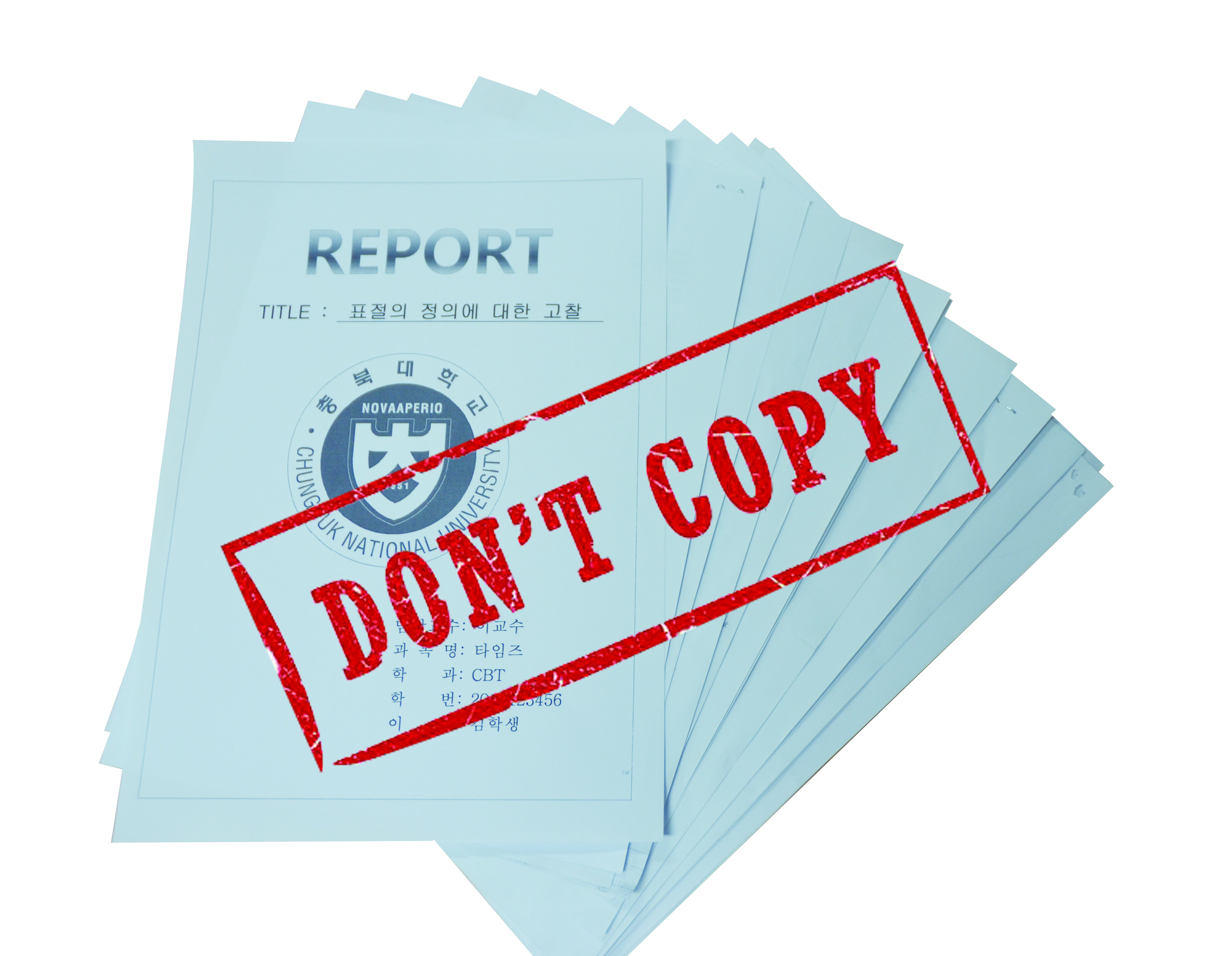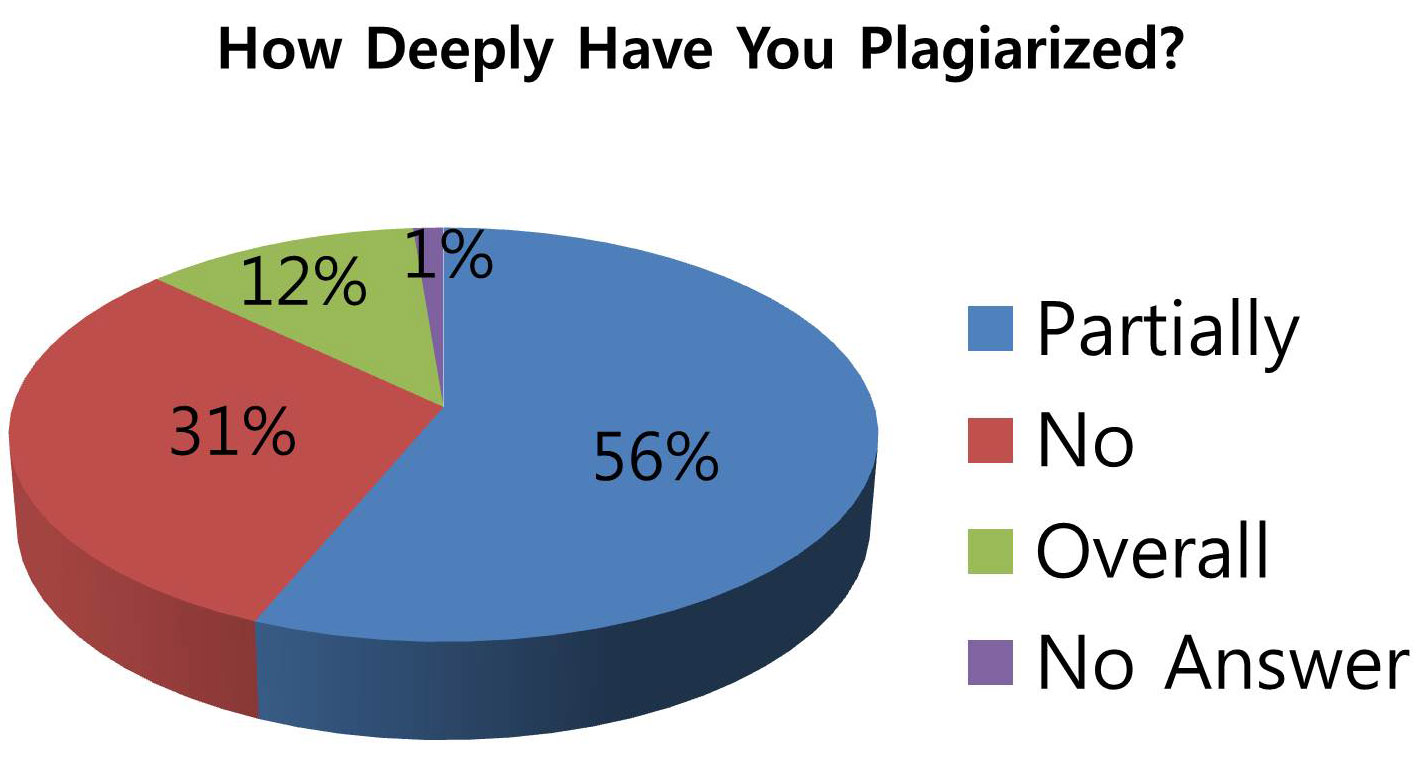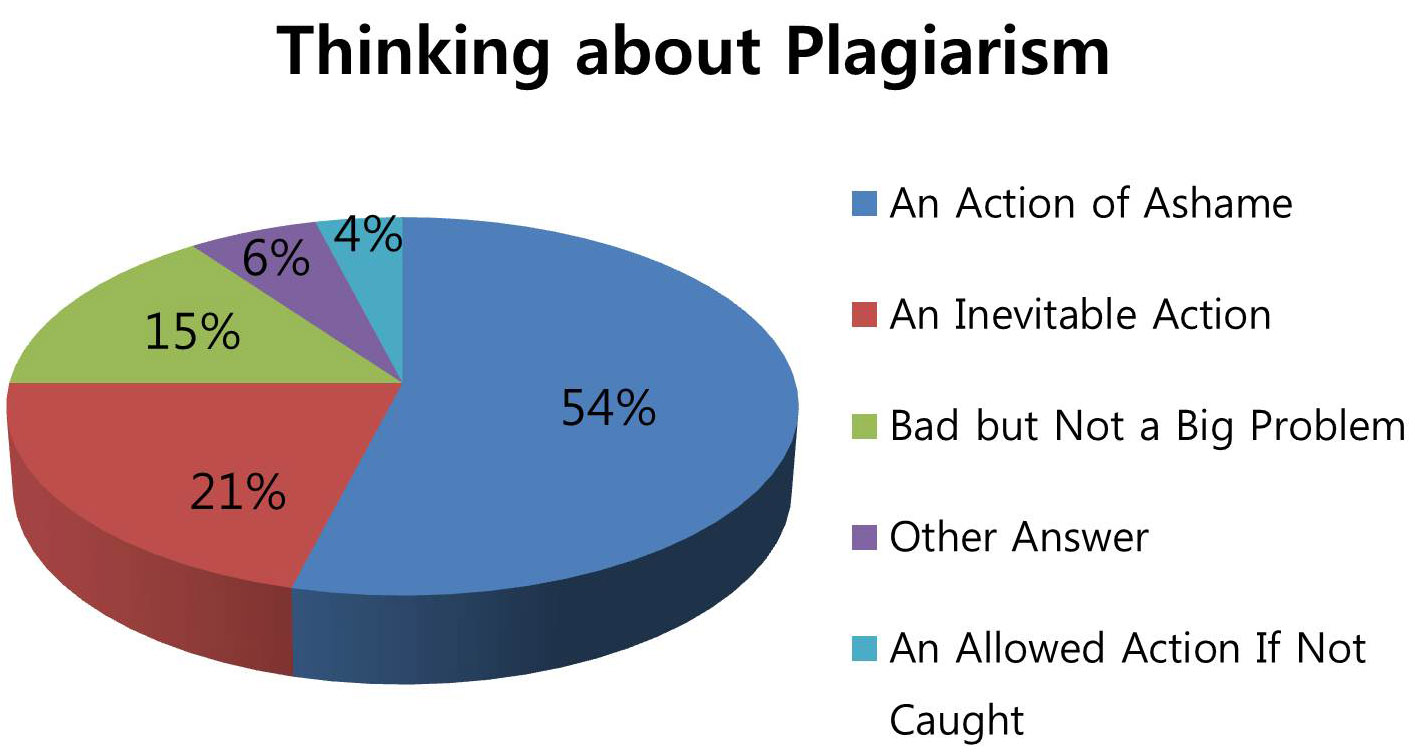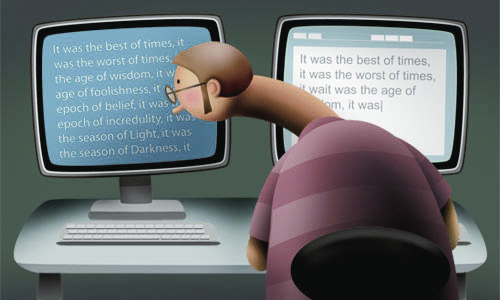
Recently, the plagiarism by lawmakers including Moon Dae-sung has become a social and political issue. Moon Dae-sung said, "I admit using too many quotations and not identifying the quotations, but I didn't know that it was plagiarism." Finally, he defected from the Saenuri Party and submitted his resignation of professorship in Dong-A University. However, he has not resigned from the National Assembly. Moon Dae-sung was at the center of a controversy of plagiarism because he is known as a public figure. However, plagiarism is not a problem of only public figures. Plagiarism spreads not only in the world of public figures but also in the world of university students. It is said that the ethical insensitivity of plagiarism has gone too far. CBT polled 200 university students to find out how they feel about plagiarism. -Ed
Plagiarism on campus
Most assignments are essays, and plagiarizing other’s reports became easier with the development of the Internet. Students can download reports and information that they want by paying 500won to 1,000won through websites that sell reports. Moreover, students who entrust their assignments to agencies are increasing. For this reason, university students have only improved their plagiarism skills, and they don’t think for themselves. Following this trend, some 24% of students surveyed said that they have plagiarized, and 50% of students said that they have partially copied others’ reports and information.
However, some students support these types of plagiarism. 21% of students answered, “Plagiarism is an inevitable action for school credit,” and 15% of students said, “Plagiarism is bad, but it is not a big problem.” What was worse, 26% of students think that plagiarism is not a crime, so they don’t feel guilty. 3% of students said, “Plagiarism is no problem if they are not caught by the teacher.”
CBNU student Park (’12) said, “Plagiarism is a superficially bad action, but it is a needed action in reality. Imitation is the mother of creation. Therefore, I think plagiarism is not a crime, and it is no problem if they are not caught by the teacher.” Student Kim (’11) said, “I unavoidably plagiarized some sentences because time was running out. I think plagiarism is a crime, but it is okay because many students plagiarize. Many students probably get better grades by submitting plagiarized essays. Therefore, I don’t want to get bad grades due to not plagiarizing.” Plagiarism on campus seems to be accepted as ordinary for most people.


University students have little awareness about plagiarism
Plagiarism is when one uses part or all of a work that another created without revealing the source of the information. However, many people don't often know that their actions are plagiarism. There are especially many cases of plagiarism where people copy some sentences without giving it much thought. In reality, 32% of the surveyed students answered that they don't disclose the source of the information in quoting others' works. Besides, 16% of those who responded that they don't plagiarize others' works said they write papers without revealing the source of information.
A student Son('09) said, "The reason that students plagiarize is that they don't think their acts are plagiarism. They should realize the standards and ranges of plagiarism." For these reasons, he emphasizes that parents and teachers should teach the standards and the extent of plagiarism.
Another student Yu('09) said, "Plagiarism is bad in itself. However, if you make your own data through much information, it is not as bad if there is one quotation without disclosing the source of information.“

Universities’ efforts protecting against plagiarism
Korea is trying to protect against plagiarism beginning with making research ethics guidelines in 2007 after Hwang Woo-suk fabricated a paper in 2005. The government has started introducing a plagiarism detection system to improve the quality of business education in the university since 2010.
Seoul National University(SNU) uses ‘e-TL’ which detects plagiarism that students submit. SNU can know whether students plagiarize reports or not by using ‘e-TL’. The system can distinguish various types of plagiarism, such as rearranging words and summarizing others’ reports.
Yonsei University introduced a system that has shown degrees of plagiarism to the professors since the first term in 2011. This system is embedded on `YSCEC`, which is a network that supports lectures. It immediately suggests the imitating rate and the source material to the professor when students submit assignments. A university staff member explained that if a report’s imitating rate is more than 70%, it is obviously plagiarized. The system can distinguish plagiarized reports before professors check the lists of reports.
Chungbuk National University adopted a plagiarism detection system in the spring semester of 2012 and is implementing it. This system was planned as a part of Advanced College of Education(ACE). Professors can confirm whether students plagiarize their reports or not through this system. A staff member of the CBNU Head Office said, "CBNU introduced this system to improve writing skills and academic achievement. In the long term, I hope to build a culture of protecting intellectual property rights and keeping an academic conscience."
What a professor thinks about plagiarism
Hurh Seok-yeol
A Professor of Dept. of Sociology
When I review my students' reports, I can know that plagiarism is widely spread among students. Moreover, online services are spreading to provide students with various other students' reports according to each subject. For these reasons, students easily download others' reports and plagiarize them.
The school authorities determined to offer professors some software. It can judge whether students plagiarize others’ reports or not. I think that the decision of the school authorities is too late. However, they should actively introduce the software to the educational curriculum now.
However, the more important thing is to heal the indifference about the ethics of plagiarism. The consciousness of plagiarism in our country is much weaker than the U. S. and countries in Europe. Senior officials or members of the National Assembly are often under controversy for plagiarism. This shows that plagiarism is very routine among the leaders of society.
If social cognition that plagiarism is theft of others' knowledge and effort spreads, plagiarism will considerably disappear.


 All
All Feature
Feature






 양사랑, 이하나, 유하경
양사랑, 이하나, 유하경













